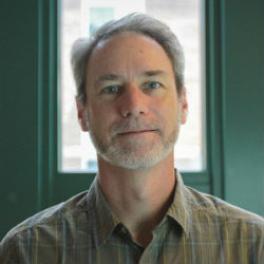
Professor William "Chip" Eveland has always loved public opinion.
Eveland serves as a professor of communication and political science by courtesy, educating students on political discourse and how media and communication shape today’s political climate.
Over the past few years, Eveland has been particularly interested in how race and political partisanship intersect. His research centers on how and why people engage in political communication behaviors and the implications of these behaviors. Events such as the shooting of Trayvon Martin, a 17-year-old African American student, caused Eveland to shift his focus from purely political conversations to understanding how race can affect one’s opinion on political events and issues.
“My current research interests could best be summed up as: Who talks about politics, with whom, for what purpose, through which channels, what do they say and what effects does it have on the functioning of democracy?” Eveland said.
Eveland’s recent research about race entitled, “Why we can’t talk openly about race: The impact of race and partisanship on respondents’ perceptions of intergroup conversations” was recently published in Group Processes & Intergroup Relations.
This research was conducted in coordination with Professor Osei Appiah, PhD student Olivia Bullock and Ohio State PhD alumna Kathryn Coduto.
As one of the top research contributors in the School of Communication, Eveland has participated in multiple projects that specifically study interpersonal relationships regarding communication.
Eveland began studying politics after the first Persian Gulf War. He said he loves teaching the class “Political Communication 4814” because it is “a way of helping students realize how they should feel about information in a political environment and how efforts exist to influence political advertising, presidential debates, and news.”
The class focuses on media literacy, specifically in the political sector, and allows students to listen and discover opinions different from their own.
“I always feel like I’m doing something to help change the world just a little bit,” Eveland said.
Eveland’s advice to Ohio State alumni and students alike is to “expose yourself to ideas that might make you uncomfortable or difference on any dimension, such as race, gender, age or partisanship as well as working not to be defensive but rather to simply listen and understand other people and where they are coming from.”
Article by student Emma Brodbar
